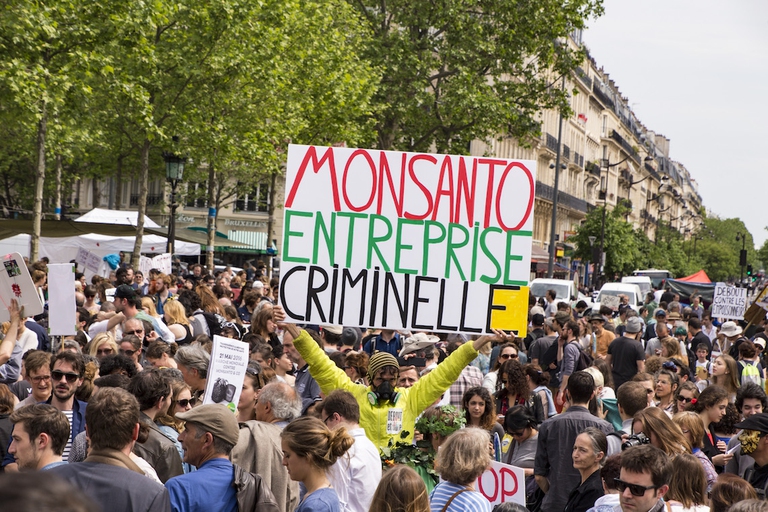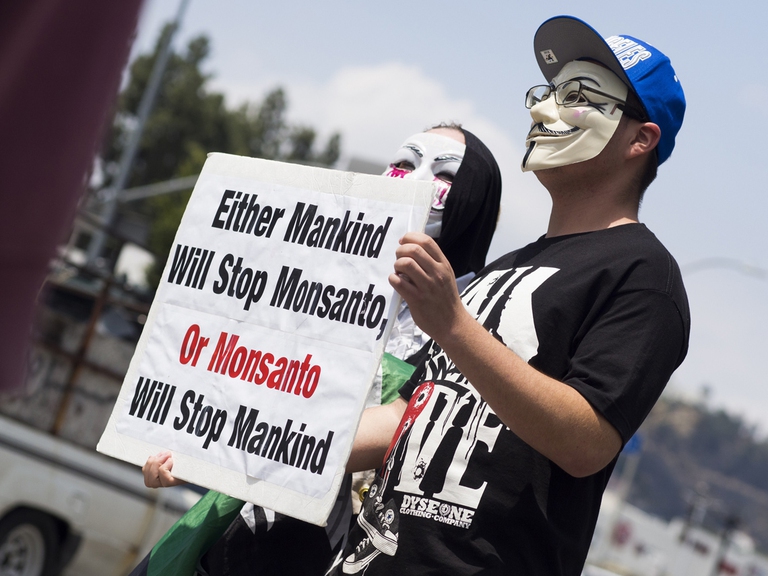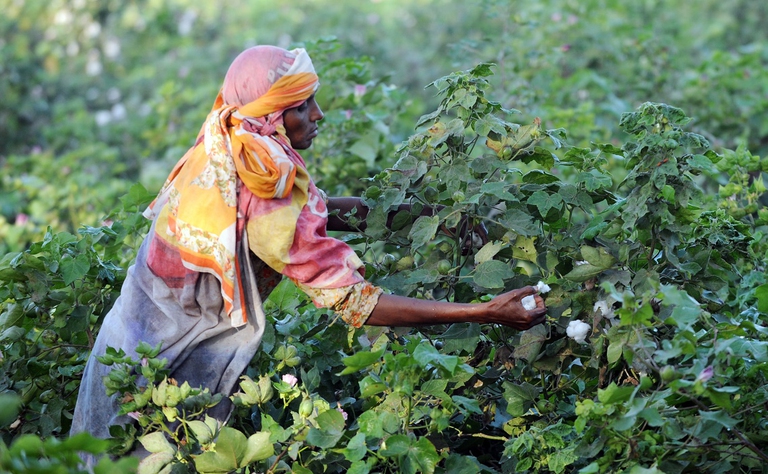
A report by Ember explains that in 2025 electricity generation from renewables (solar, wind and hydropower) surpassed that from fossil fuel sources.
The only responsible decision the European Union can make is to stop the Bayer-Monsanto merger. However, the latest updates from the European Commission don’t seem promising. The deadline for the verdict of the merger between Monsanto and Bayer (which amounts to over 63 billion dollars) has been extended to the 5th April 2018. The European Competition
The only responsible decision the European Union can make is to stop the Bayer-Monsanto merger. However, the latest updates from the European Commission don’t seem promising. The deadline for the verdict of the merger between Monsanto and Bayer (which amounts to over 63 billion dollars) has been extended to the 5th April 2018. The European Competition Commissioner, Margrethe Verstager, who had already cleared the approval of other mergers including Dupont and DowChemical (estimated at 122-130 billion dollars) and Syngenta and ChemChina (43 billion dollars), has announced that Bayer is being cooperative in responding to issues raised by the competition watchdogs. Bayer, for instance, is also planning to sell its global vegetables seeds business and allow chemical giant BASF access to its digital farming data. Verstager’s statement therefore seems to point towards a green light for the approval of the merger.
The Commission, however, isn’t listening to the demands of hundreds of civil rights movements and farmers’ organisations around the world. Big agri-business mergers represent one more step into the wrong direction, because they are shifting power from small and medium farmers into the hands of multinational corporations which will eventually monopolise the agricultural as well as the food sectors.
The process we are witnessing can no longer be considered a mere discussion on commercial competition, as suggested by Vestager, who pointed out that the role of the European Commission is not to block the merger but to ensure that this process doesn’t stifle competition. We’re in fact facing a political emergency with multiple devastating effects on the economy. Through patents, intellectual property rights (IPR) and free trade agreements, large multinational companies have established monopolies, threatening the rights of farmers to use their own seeds, the rights of people to access of affordable medicines and the rights of consumers to healthy and nutritious food.
In little more than half a century, small farmers have been under attack in most parts of the world in order to favour the toxic production systems of industrial agriculture at every level. The six multinational corporations which control the production of seeds, pesticides and biotechnologies want to increase their power through international mergers. If these mega-mergers get approved, within a short time only three companies will be in control of nearly 60 per cent of the world’s seeds and nearly 70 per cent of the agro-chemicals and pesticides.
It’s a strategy designed to extend the control of multinational corporations not only over our food but over our democracy too. Corporations are expanding their markets through mega-mergers while simultaneously increasing their influence and pressure on governments and institutions by addressing policy makers directly. Through aggressive propaganda they’re also undermining independent science to ensure that health and environmental regulations do not interfere with their profit-generating activities, which leads to a further erosion of our democratic principles. By expanding their monopolies on seeds, food, chemicals and medicines, multinationals are increasing their control over our food and our health. The negative impacts of this system affect mostly small and medium producers and low-income consumers.
Regulatory agencies should therefore not approve the merger and protect their citizens. The planned merger was announced in September 2016 and it will need the approval of regulators of some 30 countries in which it would operate. Bayer still faces important investigations into the Monsanto affair, by regulatory agencies in the United States, the European Union and India. While Brazil, one of the main producers of cereals and other agricultural goods, has just given its approval to the proposed merger, Bayer decided to bring the Russian antitrust regulator to court. Igor Artemiev who is in charge of the Russian antitrust, has revealed that Bayer has sued the Russian control agency.
Even in India, where the integration process is subject to the approval of the Competition Commission of India (CCI), the debate involves many actors from civil society. After the merger, India would be one of Bayer’s main markets for research and development, as stated by Richard van der Merwe, managing director of Bayer CropScience Ltd in India. His goal is to obtain the approval of the CCI by May but the merger is expected to face stiff opposition in India, especially due to the negative impacts of GMO crops on the environment and the economy.
Read also: It’s time for India to say no to Monsanto. From Bt cotton to GM mustard, two decades of corporate corruption and scientific fraud
Expressing concern about the merger between Monsanto and Bayer, Indian activist Vandana Shiva has submitted her official objection to the Competition Commission of India: “The Bayer Monsanto merger is not an arithmetic issue of economic concentration. It is a political issue. If the mergers go through, it will be spelling the end of peoples’ rights, democracy and constitutional safeguards. In 20 years time Monsanto has illegally captured the cotton seed sector violating biosafety laws and corrupting regulatory agencies.”
Siamo anche su WhatsApp. Segui il canale ufficiale LifeGate per restare aggiornata, aggiornato sulle ultime notizie e sulle nostre attività.
![]()
Quest'opera è distribuita con Licenza Creative Commons Attribuzione - Non commerciale - Non opere derivate 4.0 Internazionale.
A report by Ember explains that in 2025 electricity generation from renewables (solar, wind and hydropower) surpassed that from fossil fuel sources.
The Tyler Prize, considered the “Nobel Prize for the Environment,” has been awarded to Toby Kiers, an American biologist working in Amsterdam.
Belgium is one of the countries most exposed to climate change. Dune–dikes are a solution to curb sea-level rise.
Between October 2024 and September 2025, the average temperature in the Arctic was 1.6 degrees Celsius higher than during the 1991–2020 period.
Undeclared conflicts of interest, paid authors, lack of transparency: one of the most cited studies on glyphosate, published in 2000, has been retracted.
The Copernicus service has released data for the first eleven months of 2025: global warming is set to come close to last year’s record.
The European Council and Parliament have reached an agreement on the European Commission’s proposal to deregulate new GMOs. But farming, organic agriculture, and environmental organizations are calling for it to be stopped.
The world’s second-largest producer has taken a historic decision. However, farms will have until 2034 to shut down.
A Greenpeace report denounces Russia’s political and economic model: a nexus of extractivism, authoritarianism and war that is destroying the environment, with serious repercussions for the global ecosystem.










